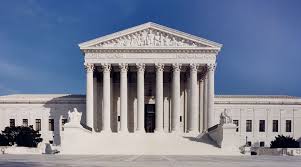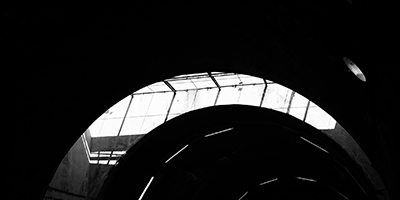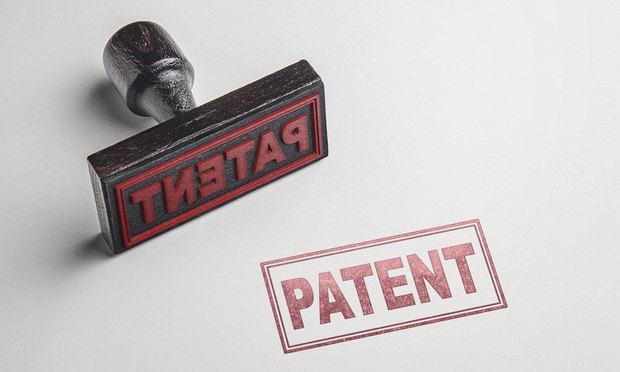Quarterly Journal 48-4
In This Section
The AIPLA Quarterly Journal, a publication of the American Intellectual Property Law Association, is housed at the George Washington University Law School and is edited and managed by an Editorial Board of intellectual property experts and a staff of law students under the direction of the Editor-in-Chief, Professor Joan Schaffner.
The Quarterly Journal is dedicated to presenting materials relating to intellectual property matters and is published four times per year. Editorial Board members (all of whom are lawyers) are selected based upon demonstrated interest and experience, and student staff members are selected from the students of the GWU Law School.
Thank you to our advertiser, Computer Packages, Inc., for their continued support.
 QJ 48.4 - CERTIORARI IN PATENT CASES
QJ 48.4 - CERTIORARI IN PATENT CASES
Christa J. Laser
CERTIORARI IN PATENT CASES
In the decade from 2010 to 2019, the Supreme Court decided more patent law cases than in the prior three decades combined. From all appearances, we live in an age of renewed interest in patent law. However, what truly drives the Supreme Court’s interest to review patent cases? What factors have played a role in the increased rate of certiorari of patent cases? In this Article, the Author explores the history and some statistics on Supreme Court review of patent cases, the role of amici and the views of the Solicitor General, the rise of a Supreme Court patent bar, the perception of the Federal Circuit’s deviance from Supreme Court precedent and approaches, and increased ideological division at the Court as factors in the Supreme Court’s increased rate of review of patent cases in recent years. The Author conducts and reports on anonymized interviews with those most familiar with Supreme Court certiorari decisions to provide a qualitative assessment of the key factors that have influenced Supreme Court review of patent cases and provide analysis of how these considerations might impact patent cases in the decade to come. Noteworthy data include that, contrary to assertions in prior scholarship, although experienced Supreme Court advocates bring unique skills that increase the rate of certiorari on petitions they file, the identity or name recognition of an advocate does not have a significant impact on the certiorari decision. The Article also explores how the process of certiorari in patent cases could be improved. Namely, the Author recommends that in deciding whether to grant certiorari in a patent case, where there are typically no circuit splits to help signal the need for Supreme Court review, the Court should give greater weight to whether a writ of certiorari is in the public interest, particularly whether a Supreme Court decision would contribute to or undermine the certainty and stability of the law.
 QJ 48.4 - HOW STANDARDIZATION FACILITATES THE SPECULATED FUNCTIONS OF THE PATENT LAW
QJ 48.4 - HOW STANDARDIZATION FACILITATES THE SPECULATED FUNCTIONS OF THE PATENT LAW
Tien-hsin Wang
HOW STANDARDIZATION FACILITATES THE SPECULATED FUNCTIONS OF THE PATENT LAW, AS OBSERVED FROM THE DEVELOPMENT OF THE INTERNET OF VEHICLES
Prospect theory speculated that technological possibilities can be a gold mine. A great inventor can prospect those technological possibilities with the grant of patent rights and enlist collaboration to exploit possibilities innovatively. In his famous 1977 article, Edmund Kitch, the creator of the prospect theory, posited that disclosure and coordination are the two crucial functions of the patent system. In practice, the coordination of follow-on research and development is inherently problematic due to the diversity of technological possibilities, extensive knowledge, and the number of researchers required. Standardization utilizes the creation of technology platforms for component and end-product manufacturers to coordinate and disclose specifications for implementers to follow. The practices facilitate problem-solving by encouraging technical contributions. This Article discusses Kitch’s disclosure and coordination functions, and how standardization validates his ideas without prospect patents. While the growing interest in the Internet of Vehicles is propelling discussion on the superiority of the IEEE 802.11p and LTE-V2X standards, firms cannot neglect compatibility, which enables firms to compete and collaborate at the same time. Undoubtedly, the spread of competitive collaboration fosters consumer welfare.
 QJ 48.4 - MODIFY LIKE SPOTIFY
QJ 48.4 - MODIFY LIKE SPOTIFY
Ethan Barr
MODIFY LIKE SPOTIFY: REPLACING THE “INTENDED AUDIENCE” STANDARD AND EMPLOYING MUSIC PSYCHOLOGISTS FOR COPYRIGHT INFRINGEMENT
Copyright infringement doctrine requires finders of fact to assess two elements, copying in fact and improper appropriation, as set forth by the Court of Appeals for the Second Circuit in Arnstein v. Porter concerning musical works. The same court also gave birth to a standard for expert witnesses—they are permitted to testify regarding copying in fact, but they are prohibited from opining as to whether that copying went so far as to be improper.One such struggle for courts is jury assessments of improper appropriation from the perspective of the ordinary observer, or “lay listener,” for musical works. Juries are charged with analyzing the reaction of the intended audience, which is a difficult perspective for an average juror to adopt.
Another issue for courts is the use of expert testimony. Many expert witnesses taint the jury’s determination of improper appropriation with inappropriately subjective information. At times, courts will overlook inadmissible testimony that casts a shadow of doubt regarding fairness in these trials. Furthermore, parties typically employ expert witnesses of occupations with varying degrees of relevance, which leads to inconsistent outcomes in music copyright infringement jurisprudence.
This Note first argues that courts should abandon the “intended audience” standard in favor of an “actual audience” standard because the reactions of the individuals paying for the music are more important. Additionally, as the concept of an “intended audience” deteriorates in the music industry, courts should follow suit.
The Author's second argument is that courts should employ neutral music psychologists as expert witnesses in music copyright infringement trials because they are able to provide objective information regarding human perception of musical similarities. Adoption of a standard expert witness would avoid fragmented decisions from the age-old dilemma of “battles of the experts.”
 QJ 48.4 - PATENTS VS. PRIVACY
QJ 48.4 - PATENTS VS. PRIVACY
Emily Burge
PATENTS VS. PRIVACY: BALANCING CROSS-BORDER DISCOVERY WITH THE GENERAL DATA PROTECTION REGULATION IN PATENT LITIGATION
The General Data Protection Regulation ("GDPR") has an unclear and potentially dangerous impact on cross-border discovery for patent litigation in the United States. The GDPR significantly increases the severity of punishment for unlawful transfer of personal data to countries outside of the European Union, and acts as a foreign blocking statute to limit discovery under the Federal Rules of Civil Procedure. This Note predicts how the GDPR will impact pre-trial discovery in patent litigation by analyzing trends in federal courts and International Trade Commission decisions. This Note also proposes a strategy to increase the predictability of the conflict of law analysis performed by courts: amending the procedure for obtaining protective orders of personal data under Rule 26(c), and for filing personal data under seal under Rule 5.2 to incorporate the effective aspects of discovery procedures used by the International Trade Commission.
 QJ 48.4 - THE ENFORCEMENT OF PROCESS PATENTS
QJ 48.4 - THE ENFORCEMENT OF PROCESS PATENTS
Shannon Yi
THE ENFORCEMENT OF PROCESS PATENTS: STEPS FORWARD
Patent enforcement of process patents has always been difficult due to the unique characteristics of processes. The steps included in a process are often fleeting and less tangible than a product. Nonetheless, these steps significantly affect and are crucial to the functions of the final product. The avenues provided by Congress for process patentees to pursue infringement suits are unclear and do not adequately provide protection to the patentees. Courts are divided in their interpretations of 35 U.S.C. §§ 271(a) and 271(g), resulting in inconsistent court decisions and further convoluting process patent enforcement. Instead of relying on inconsistent judicial interpretations, Congress should amend 35 U.S.C. §§ 271(a), 271(g), and 295 to clarify their intentions. This Note proposes that 35 U.S.C. § 271(a) should be amended to explicitly include “processes” in defining “patented invention.” Additionally, 35 U.S.C. § 271(g) should be amended to explicitly hold both domestic and foreign downstream manufacturers liable for infringement of U.S. process patents. Lastly, 35 U.S.C. § 295 should be amended to clearly define when an alleged infringer bears the burden of proving non-infringement.
Upcoming Events
-
.png?sfvrsn=9aa26827_1) 2026 AIPLA Virtual Corporate Practice Institute
2026 AIPLA Virtual Corporate Practice Institute
January 13 to 20, 2026 | Up to 360 Minutes of CLE
The Corporate Practice Institute is not a bootcamp. This program provides in-depth insight for in-house corporate counsel and agents to learn about wide ranging legal issues affecting their practice from experienced practitioners. It is designed for experienced in-house attorneys and new in-house attorneys learning to manage new corporate environments and challenges not taught in law schools or private practice. The Institute also helps private practice attorneys, especially associates, prepare for potential in-house career moves. The program also provides valuable networking opportunities to connect with each other and learn from each other's experiences. This online, CLE-program spans two half-days, from Noon – 5:00 pm Eastern and includes 3 one-hour education sessions and a networking session each day. -
 AIPLA CLE Webinar: Regulation, Risk & Resilience: The Nexus Between Professional Liability, Duty of Competence & Practitioner Well-Being
AIPLA CLE Webinar: Regulation, Risk & Resilience: The Nexus Between Professional Liability, Duty of Competence & Practitioner Well-Being
February 10, 2026 12:30 PM to 2:00 PM | Eligible for up to 90 Mins CLE
Mental health issues and substance use disorders can affect any practitioner, in any setting, and at any time. Left untreated, they can destroy careers and lives. This program will discuss where the legal profession currently stands in relation to the substantial challenges presented by untreated mental health issues and substance use disorders and examine the nexus between ethical competence under the USPTO Rules of Professional Conduct and practitioner well-being. This program will educate attendees on how to recognize the signs of an impaired attorney, how to approach the colleague and begin a conversation, and discuss the possible disciplinary and professional liability implications of an impaired practitioner’s conduct. In addition, the speakers will present best practices/effective risk management strategies, preventative measures, and proposed policy and well-being initiatives, that practitioners in any practice setting may implement to protect clients, themselves, and other firm members as well as save careers. -
.png?sfvrsn=fb5905da_1) 2026 IP Transactions Bootcamp
2026 IP Transactions Bootcamp
February 12, 2026
This in-person bootcamp is designed to provide practical insights and strategies for professionals working in intellectual property transactions. The day features a comprehensive agenda including: Panels and CLE Sessions: Learn about Working with Tech Transfer Offices, Strategies for successful collaborations between nonprofits and industry, and Protecting and monetizing an AI asset. Drafting and Negotiating Tips: Get practical advice on drafting and negotiating strategic collaboration and license agreements. Hands-on Workshop: Participate in a Mock licensing negotiation to put your skills to the test. Networking: Conclude the day with a dedicated Networking reception. -
2026 Patent Prosecution Boot Camp - Arlington, VA
March 4 to 6, 2026 | Up to 1235 minutes, including 60 Ethics minutes
Registration coming soon! The 2026 Patent Prosecution Boot Camp is a comprehensive, CLE-accredited seminar that includes instructional lecture-style sessions with practical tips on U.S. and international patent preparation and prosecution, as well as hands-on interactive workshops that will walk you through drafting claims and responding to office actions. -
-(1).png?sfvrsn=7a1054_1) 2026 Trade Secret Summit
2026 Trade Secret Summit
March 26 to 27, 2026
The AIPLA Trade Secret Summit is the leading trade secret conference in the nation, with speakers from across the spectrum of private practitioners, in-house counsel, government, and academia, as well as fantastic networking opportunities. CLE credits will be available.

